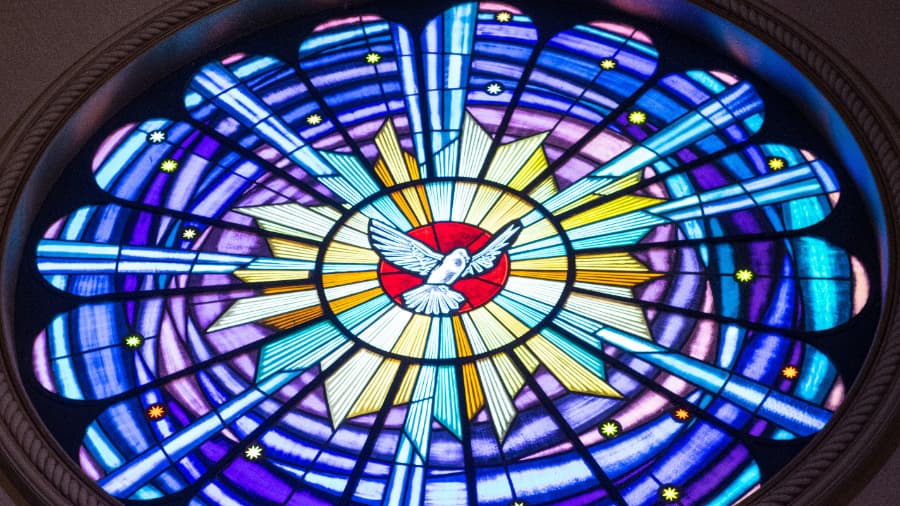
1. Why Is the Trinity So Important?
Let’s be honest: the Trinity can feel like one of the most confusing concepts in Christianity. How can God be one and yet three at the same time? If you’ve ever wondered this, you’re not alone. But here’s the thing—the Trinity is central to what we believe as Christians.
It’s not just a fancy theological idea; it’s foundational to understanding who God is and how He relates to us. Stick with me as we break it down in simple terms.
2. How Did the Concept of the Trinity Develop?
The word “Trinity” isn’t in the Bible, but the idea is woven throughout Scripture. Early Christians wrestled with how to describe the relationship between God the Father, Jesus the Son, and the Holy Spirit.
This all came to a head at the Council of Nicaea in AD 325, where church leaders clarified that God is one in essence but exists in three distinct persons. This wasn’t just a theological debate—it was about preserving the truth of who God is.
3. Where Do We See the Trinity in the Bible?
The Bible is full of references to the Trinity, even if it doesn’t use the term outright. Here are a few examples:
- Creation: In Genesis 1:26, God says, “Let us make man in our image.” Who’s the “us” here? It’s an early hint of God’s triune nature.
- Jesus’ Baptism: In Matthew 3:16-17, we see all three persons of the Trinity in action. Jesus is baptized, the Spirit descends like a dove, and the Father’s voice speaks from heaven.
- The Great Commission: Jesus commands His disciples to baptize “in the name of the Father and of the Son and of the Holy Spirit” (Matthew 28:19).
These verses show us that the Trinity isn’t a later invention—it’s rooted in Scripture.
4. Analogies for the Trinity: Helpful or Misleading?
If you’re like me, you’ve probably heard analogies to explain the Trinity. Here are a few common ones:
- Water: It can exist as liquid, ice, or steam—different states but still water.
- The Sun: It gives off light, heat, and energy, but it’s one source.
- An Egg: It has a shell, a yolk, and a white, but it’s one egg.
These analogies can be helpful, but they’re not perfect. God is far greater and more complex than anything in creation. Analogies give us a starting point, but they can’t fully capture the mystery of the Trinity.
5. God as Father, Son, and Holy Spirit
Let’s break this down:
- God the Father: He’s the Creator, the source of all life, and the one who lovingly planned salvation (Genesis 1:1, John 3:16).
- Jesus the Son: He’s God in the flesh, who came to save us by dying on the cross and rising again (John 1:14, Colossians 1:15-20).
- The Holy Spirit: He’s God living in us, guiding, comforting, and empowering us (John 14:26, Romans 8:11).
Each person of the Trinity has a unique role, but they work together in perfect unity. Isn’t that amazing?
6. One God, Three Persons: How Does It Work?
This is the tricky part. The Trinity means that God is one in essence but three in persons. It’s not three gods or one God wearing different “masks” at different times. Think of it like this: God is one “what” (His essence) and three “whos” (Father, Son, and Spirit).
This might stretch our brains, but it shows us how unique and awesome our God is.
7. Why Does the Trinity Matter for You?
You might wonder, “Okay, but how does this affect my life?” Here’s why the Trinity matters:
- Prayer: You pray to the Father, through the Son, in the power of the Holy Spirit.
- Relationship: The Trinity shows us that God is relational by nature. He invites us into that relationship.
- Unity: The perfect harmony of the Trinity is a model for how we should live in unity with others.
Understanding the Trinity isn’t just head knowledge—it changes how we relate to God and to each other.
8. Common Questions About the Trinity
- Is the word “Trinity” in the Bible? No, but the concept is everywhere (see Matthew 28:19, John 10:30).
- Isn’t it a contradiction? No. It’s mysterious, but God’s nature is beyond our full understanding (Isaiah 55:8-9).
- Why is this so hard to understand? Because God is infinite, and we’re not. It’s okay to embrace the mystery.
9. How Does the Trinity Set Christianity Apart?
The Trinity is unique to Christianity. Other religions may see God as singular (like Islam) or have multiple gods (like Hinduism), but the Bible reveals a God who is both one and three. This is key to understanding salvation: only a triune God could send the Son to save us and the Spirit to dwell in us.
10. Conclusion: Embracing the Mystery
The Trinity is a profound mystery, but it’s also a beautiful truth. We may never fully grasp it, but that’s okay. What matters is that we trust the God who has revealed Himself as Father, Son, and Spirit.
Take some time to read the Scriptures, pray, and ask God to deepen your understanding. The more you explore this mystery, the more you’ll be in awe of His love and greatness.



